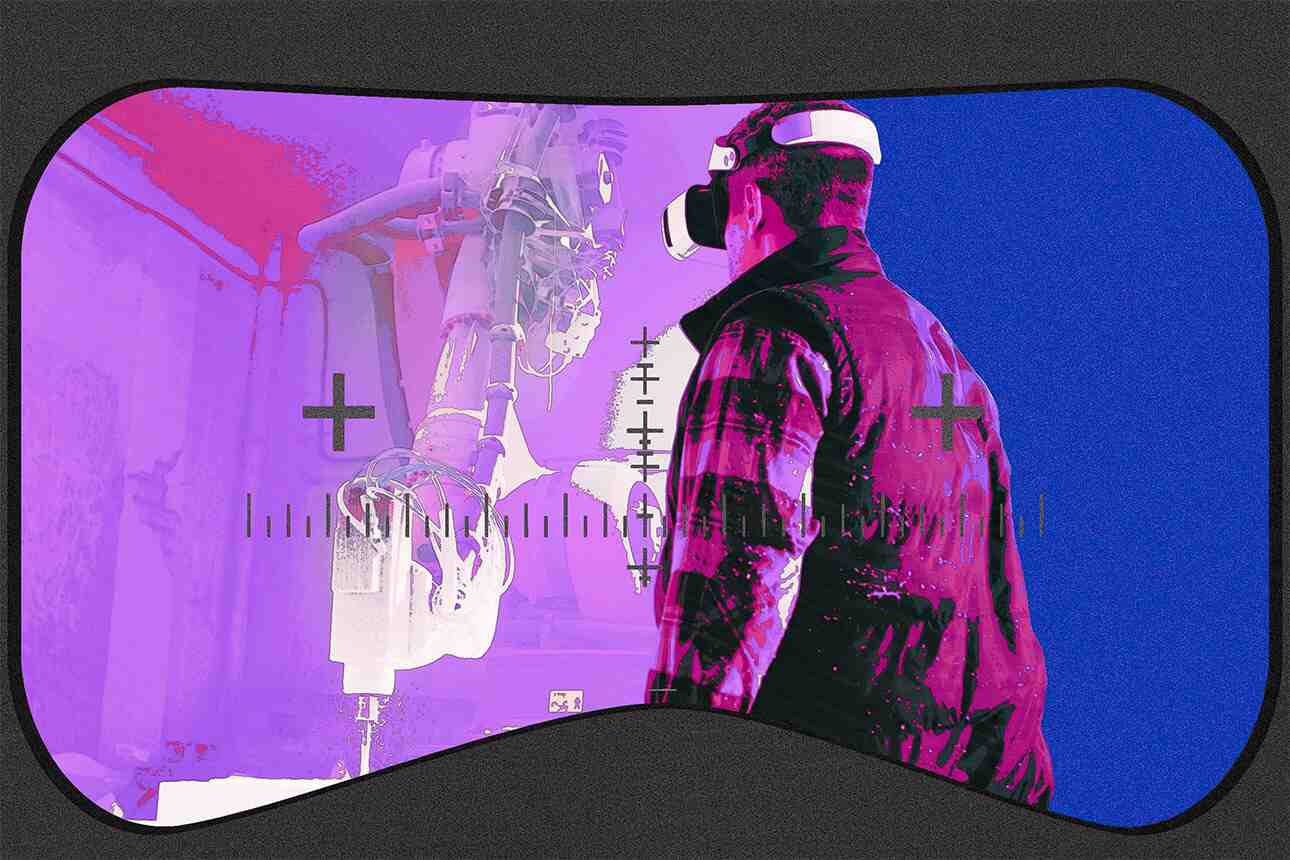Industrial Metaverse Spend Increases as Immersive Engineering Use Cases take Hold
In 2024, top IMV use cases will be in training, collaboration, and production planning.
Topics
News
- Is the Race for First-Mover Advantage Normalising 996 in Tech?
- Databricks CEO Challenges the Narrative That AI Will Kill SaaS
- Moltbook’s Episode Turns Out To Be Theatrics
- OpenAI Launches GPT-5.3-Codex
- Inside Al Baraka Bank Egypt’s First Digital Branch
- Dubai Chamber of Digital Economy Partners With Canva to Set Up Regional HQ

[Image source: Anvita Gupta/MITSMR Middle East]
The industrial metaverse (IMV) is set to greatly enhance manufacturing engineering, training, safety, and production. According to a new report from global technology intelligence firm ABI Research, spending on industrial metaverse solutions and services will grow at 22.8% to reach $6.3 billion by 2030 as immersive and collaborative capabilities come to the forefront of industry 4.0 software development efforts.
IMV solutions use immersive technologies and digital twin initiatives, integrating data virtualization, AI simulation, business operations systems, and external data sources to enable connectivity between digital twins and other systems.
In 2024, top IMV use cases will be in training, collaboration, and production planning, with emphasis on solutions driving positive business outcomes in a short time.
Examples include Norwegian clean battery producer FREYR equipping its gigafactories in Norway and in the U.S., Siemens Industrial Operations X, AWS IoT TwinMaker, and Nvidia Omniverse are creating immersive metaverse experiences.
Danone is using Matterport Pro3 cameras to capture 3D imagery of its facilities so authorized users can virtually visit and explore the production site using a computer or mobile device.
Burckhardt Compression uses PTC’s spatial computing services for remote assistance and automated report-generation scenarios involving a supertanker in the middle of the ocean. Other notable providers include AVEVA, Dassault Systèmes, Ericsson, Microsoft, and Nokia.
Increasingly, the aim is to enable full factory metaverse experiences. It will start with a portion of a factory or production line, likely on an as-needed basis, initially. According to ABI Research’s Industrial Metaverse: Use Cases, Deployments, and Case Studies report, the broader environment is well-suited to partnerships that ease points of integration and enable marketplaces in the long run.
Keen to know how emerging technologies will impact your industry? MIT SMR Middle East will be hosting the second edition of NextTech Summit.








